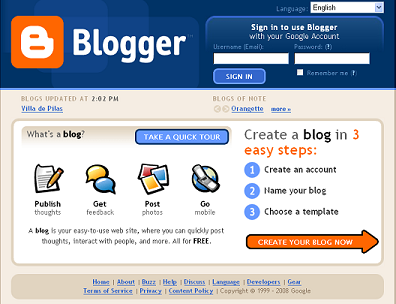Hello, Folks!
Sorry for the late update on the Week 1 reflection.It has been a turbulent week for me. To my horror, we have to take up GGGE1155 Computer In Education as a part of our elective course subject this semester 3B. Yes! You heard me right. How ironic, isn't it? Given that I'm quite a computer illiterate. Okay! Maybe I'm exaggerating a little but yes, this course has given me the creeps. Why? Let's take a walk down memory lane.
Up till the age of 15 (when I'm studying in Form 3), I've never had any sorts hand-on experience with computers. In fact, my mother only started applying for Streamyx service when I'm studying in Form 5. So I am actually a late bloomer, ICT-wise.
Our first lecture with Mr. Farduddin was really interesting. It began with the introduction into ICT, which of course, was quite a foreign subject to me. He began to break down parts of the introduction to make the lesson all the more comprehensible. He explained in details about the different components composed in a computer and their varying functions. Besides that, he presented us with slides on the operation system of computer, virus and anti-virus programs (and their functions), both hardware and programming software available nowadays. In fact, those slides are really benefiting me as I am able to understand the nature of this subject course more easily than before. The slides are interesting, brief but yet compact with useful informations. In short, Mr. Fariduddin has done a great job in trying to make the whole subject comprehensible. He managed to ease my insecurities especially in ICT wise.
Yet, I seemed to have fallen into deep despair when I was to learn that I need to create various new accounts (personal and group) for lesson purposes. The instruction itself was mind boggling as well. Why? You should have seen it yourself. Yet thankfully, Mr Fariduddin has prepared a document to be shown through a projector, mainly on the procedures to create (or should I said re-create) these accounts.
Our very first instruction was to join the UKM lecturer for the Computer In Education course subject, Dr. Siti Fatimah bt Mohd. Yassin's Yahoo! group at http://groups.yahoo.com/group/ge1155ipg2011/ . By doing this, e-learning are being made available for us as most of the notes and informations are emailed to us via the group account. After our requests were being accepted, we proceeded with creating a new official Yahoo! email account. These are some few steps that actually drove me mad with desperation initially. (Please refer to this) This goes the same with my Gmail account too(Refer to this). Thankfully, with much help for Barbara Kath, the class "technician" and Mr. Fariduddin, I barely survive the 'battle' with ICT. Just kidding!
After my successful attempt in creating my official email accounts, I need to create a Yahoo! group, with me as the administrator of the group. This subject course is life-draining. Although most of my course mates (including me as well) have our own personal Facebook account, we were required to create another account for official purposes. This goes the same too with creating a Facebook group. These accounts will serve as the medium where our trainees and lecturers could get together to discuss issues and problems faced while dealing with ICT.
Last but not least, a blog is as equally important too as the rest of the accounts as our blogs would serve as a web - portfolio. We have to post our reflections (mainly about our learning processes and improvements throughout the subject) every week to be shared to others.
In short, the first week was all about my introduction into the ICT world. I used to find ICT quite dreadful. Maybe I was lacking the interest to explore on the evolution of ICT. In fact, I need to brush up on my fairly slacking ICT skills as ICT has been gaining its momentum over the past few years in the Malaysian Education System. In other words, this course subject will be a stepping stone for me to further my knowledge in ICT, which will definitely comes in handy when I begin career as a teacher. Although I did sound negative initially, I am really grateful that we are given the chance to polish up our knowledge on the use and importance of ICT. As ICT had been changing for the best over the years gone by, I think it is best for me to upgrade myself constantly too.
And although this course subject is quite packed, I am glad that it actually helped me in my further understanding of ICT. I would like to thank Dr. Siti Fatimah and Mr. Fariduddin for their guidance and efforts given in my quest to understand and 'befriend" ICT, as well as the rest of my course mates too.
That's all from me.
So long, guys! And have a great day ahead of you!
P/s: Do comment on my posts. =)
AileenTiong Ling
A135735
B. Ed TESL IPGKS - UKM
GGGE1155 Computer in Education
Faculty of Education
Telephone Num. : 013-5603522
Email Address(es) : aileenukm7@yahoo.com/ aileenanaukm7@gmail.com
Yahoo! Group Account : http://groups.yahoo.com/group/a135735aileentiong
Facebook Account : http://www.facebook.com/a135735aileentiong
Blog Address : http://aileena135735.blogspot.com

